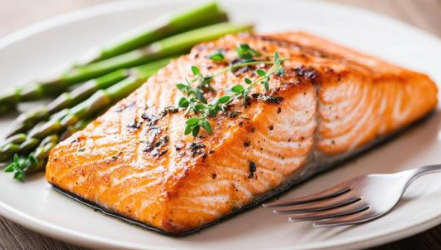
Omega-3 fatty acids are essential fats your body cannot make on its own, meaning you need to get them from food or supplements. These healthy fats play a critical role in overall wellness, supporting heart health, brain function, and even mood. Adding omega-3s to your diet can be a simple but powerful step toward better long-term health.
Omega-3s support heart health by helping to lower triglycerides, reduce inflammation, and support healthy blood pressure levels. Eating omega-3-rich foods regularly is linked to a lower risk of heart disease and improved overall heart function.
They also promote brain function and mental well-being. DHA (docosahexaenoic acid), one type of omega-3, is a key component of brain tissue. Adequate intake supports cognitive function, focus, memory and may even improve mood and reduce symptoms of anxiety and depression when paired with a healthy lifestyle.
Omega-3s help maintain a healthy inflammation response, which can support joint health and overall wellness. They also play a role in eye health—DHA is a major structural component of the retina, supporting good vision and potentially reducing the risk of age-related macular degeneration.
Skin health benefits, too. Omega-3s help maintain skin moisture, elasticity, and overall appearance, supporting the skin’s barrier function and reducing dryness or irritation.
Where to Find Omega-3s
-
Fatty fish: Salmon, mackerel, sardines, trout, and tuna
-
Plant sources: Flaxseeds, chia seeds, walnuts, and hemp seeds
-
Fortified foods: Certain eggs, yogurt, and milk products
If you don’t regularly consume these foods, a high-quality omega-3 supplement may be an option, but it’s best to discuss this with a healthcare professional.
Quick Tips for Adding Omega-3s to Your Diet
-
Aim for 2–3 servings of fatty fish per week.
-
Sprinkle chia seeds, flaxseeds, or walnuts on oatmeal, yogurt, or salads.
-
Swap some cooking oils for canola or flaxseed oil.
-
Choose plant-based omega-3s if you don’t eat fish.
Omega-3 fatty acids are essential for heart, brain, eye, skin, and joint health. Including omega-3-rich foods regularly can support overall wellness and help your body function at its best. Small, consistent steps—like adding a handful of walnuts to breakfast or choosing salmon for dinner once or twice a week—can make a meaningful difference in your health.












